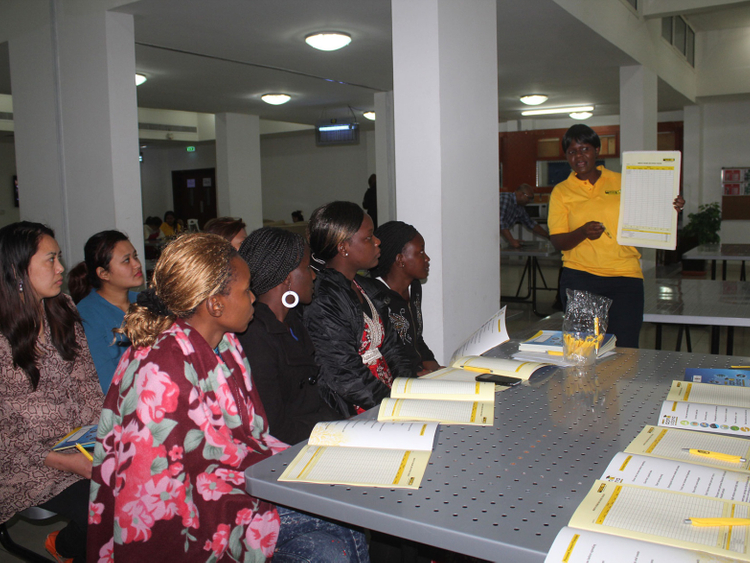Dubai: One of the fundamental personal finance skills everyone must learn is budgeting, in order to maintain a healthy cash flow and avoid being in debt.
Unfortunately, a lot of the residents in the UAE, especially expatriates working as housemaids, cleaners, housekeeping staff in hotels and other unskilled workers in various establishments, don’t know a thing or two about managing finances.
During a series of financial literacy trainings conducted for over a period of five months in different workers' accommodations across Dubai, Western Union found out that more than six in ten women don't know how to match expense to income.
Hatem Sleiman, regional vice president for Middle East at Western Union, concludes that female migrant workers clearly lack financial literacy skills.
“The great majority do not know how to balance their income and expenses, and many remain unaware of the simple fact that spending must not exceed earning,” Sleiman told Gulf News.
Western Union has recently launched its financial literacy programme for unskilled workers called Apna Sapna, which means ‘our dream’.
Through the project, the company has conducted trainings to teach expatriates the basics of finance, particularly on how to balance their earnings and expenditures in a booklet, and provide valuable advice on budgeting, spending and saving.
More than 2,200 female workers have successfully completed the training sessions in accommodations in Abu Hail, Deira, Al Quoz and other areas of Dubai. The participants represented different countries, including India, Kenya, Sri Lanka, Nepal and Philippines.
Among the participants, 66 per cent admitted that they didn’t know the basics of managing a budget, or how to ensure their spending doesn’t exceed their income. The majority of them know that it’s important to set aside some money for emergency, but in many instances, they found out that what they had put aside was simply not enough.
Unskilled workers, which constitute a huge proportion of the expatriate population in Dubai, are often the breadwinners of their families back home.
The majority of those trained by Western Union (76 per cent) confirmed that a portion of their salaries go to their parents, siblings and other relatives every month. Among the regular money senders, more than six in ten (66 per cent) of them remit funds to their mothers, 23 per cent to their fathers, 20 per cent to their siblings and 5 per cent to their spouses.
Given their limited incomes and the amount of financial responsibilities they face, it is not surprising that only a little over half of the training participants are able to save a portion of their salaries each month. About 23 per cent of them admitted that they only manage to leave 10 per cent of their income untouched.
Female workers, however, acknowledged that the financial literacy training has helped them understand the importance of managing their cash flow and saving for future needs.
When polled after the training sessions, 99 per cent of the participants said they would start saving. Western Union also noted a 50 per cent increase in the number of expatriates who are able to save 10 per cent of their income and a 400 per cent increase in those who are able to set aside 15 per cent of their monthly salary.
Beacollan Morra, an expatriate from Kenya, said the training helped her realise she needed to distinguish between want and need.
“In order to save, I have to assume that 10 per cent of my salary is not in my salary…You [also] have to be true to yourself. It is easier to save if you track your spending.”
Sleiman also noted that the female migrant workers have expressed a keen interest in knowing more about the fundamentals in planning for their retirement and starting a business on their own.
“According to our survey, savings, retirement planning and setting up a business are the three most important areas of training that indicate the women’s collective desire to secure their future,” said Sleiman.



